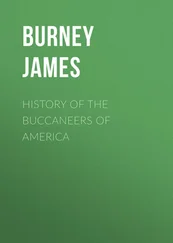After merciless middays and freezing midnights on what had once been a busy silk route, their caravan camped within sight of the Great Wall and still no one had explained to Father Verbiest what they were doing there. They had arrived in the early morning and, under specific instructions from the Emperor, selected a certain spot in the desert to set up their tents. Verbiest had seen servants leave Zhenzui’s tent to walk someplace between the nearby hills, and once they even went past the Wall, and as the day progressed and the sun became more intense, he grew impatient.
He visited the Emperor’s tent, only to be rebuked by a team of servants who repeated several times that he had no business entering there. Telling them that he’d been invited didn’t do any good, and he decided to try asking someone else. He’d heard that Chief Eunuch Ma Liang was also accompanying the Emperor on this trip, so he walked under the punishing, cloudless sky the short but tiring distance to the second-largest tent of the caravan.
Even after weeks of traveling together, meeting Xiaobo was still a disconcerting experience. He didn’t know how careful she was to eschew all forms of romance; to him, every time his eyes met with this mysterious being, he felt his vows were in danger.
“Good morning, Father,” she said in Dutch. He, like every missionary in the empire, was required to master a flawless Chinese to avoid repeating Hasekura’s disaster, but she could tell he needed to be put at ease. “Would you like a cup of tea?”
He hated the idea of drinking anything hot with the weather they were enduring, but he’d had enough experiences with dysentery to know to always ask for boiled water, regardless of how uncomfortable it would doubtlessly feel in those circumstances.
As one of the eunuchs traveling in Xiaobo’s retinue poured him a cup, she asked, “To what do I owe this visit?”
“I was hoping you’d know what we came all the way here for.”
She glanced at her servant, weighing the need to signal him to leave them alone, and decided there was no danger. “Does Rome receive news of what goes on along the Silk Road?”
“The Silk Road hasn’t been used in centuries.”
“True, but the countries it passed through still exist. What do you know of them?”
“Very little, in fact. We’ve only learned enough to start suspecting Marco Polo may not have been entirely truthful.”
She laughed at the name. “That’s a woeful degree of ignorance. And if I can get away with admitting openly before a foreigner that we’re not better informed than you are, it’s only because no one else in all this wretched desert can speak Dutch.”
Verbiest looked out and trembled. He could easily imagine all of Europe fitting in that desert. “Why do you bring up those countries?”
“Because what His Majesty is about to reveal to you today is that he’s preparing for war.”
“War? How? There’s been drought and famine in China for years. How’s he going to pay for a war when he can barely deal with a peasant revolt every month?”
“I see you have good sources. Mine tell me he’s hoping for spoils.”
“A war can’t possibly give him enough spoils to feed the whole empire.”
“Then he must be thinking of a bigger war than you are.”
Those words gave him a chilling sensation that he welcomed as a brief respite from the heat in the same thought that rejected it for what it meant. “Just how greedy is that man?”
At that moment, Zhenzui himself, Son of the Heavenly Lord, entered Xiaobo’s tent. Both the Chief Eunuch and the priest jumped to their feet and kowtowed, with Xiaobo adding the sign of the cross that this emperor had made mandatory for greeting him. “Father, you’re here. Good. I didn’t want you to miss what I’m preparing for you. Meet me outside when you finish your tea.”
Verbiest waited for him to leave and said to Xiaobo, “If you’re committing the near-treason of warning me about this, you must already agree with Rome that he has to be stopped.”
The look she gave him crushed his enthusiasm. “Before you advise your superiors to declare war, I would advise you to remember that the Emperor is but one man. He is not China.”
His face managed to blush even redder than it was already. “I wouldn’t think of doing anything against the Chinese people. I just think the Emperor is a dangerous man.”
She shook her head slowly. “I had the same thoughts, long ago. But I’ve seen more than you have. The scope of my maneuvering is limited. Even pressure from your Church has proved insufficient. By this point, I’m counting on God to step in.”
“Then you still have a sense of proper piety. Why do you salute him with the sign of the cross? He’s making a mockery of traditions he doesn’t understand.”
“I do it because everyone has to.”
“If that is so, why do I get to refuse?”
“Your allegiance is assumed, Father. The way he sees it, you’re one of his worshipers; you just don’t know it yet.”
“That damned Hasekura! I pray that hell is giving him a heat like this.”
The mention of the dead ambassador darkened her mood. A lifetime had passed since his short role in Chinese history had ended; she had become a powerful yet powerless old woman, and she hadn’t stopped blaming herself for some of the forces that had pushed him into despair. “I knew ambassador Hasekura. You may have heard that I introduced him to Emperor Taichang.”
“I know about that.”
“If I can be certain of one thing, it’s that he had the best intentions. Are you sure he is in hell?”
“He was taught in our faith. He knew that nothing excuses suicide.”
“Yes, he was Catholic, but he was also Japanese, and he was a nobleman, and he was a father. People can be many things. And the way we know how to deal with life can come from many parts of our personal history.”
“That doesn’t matter. Because of him, millions of people were doomed to idolatry.”
“No. That’s not on Hasekura. And don’t mistake the Emperor’s actions for the heart of the Chinese people. Just because he’s dragging us with him doesn’t mean we’re happy to follow.”
“Even so, we all—”
The blast of an explosion shook the desert. After a wordless exchange of nods to confirm they had indeed heard it, they ran out of the tent to find out what was happening. Atop the hill behind them they saw the Emperor, mounted on a camel and surrounded by a dozen servants. In the other direction, covered by dust, the first watchtower of the Great Wall of China was crumbling down.
Verbiest climbed the hill, muttering curses against the sun and the sand and all the members of the royal House of Zhu, and Xiaobo followed more slowly, the pain in her feet drowned by more pain in her knees and hips and spine. When the Jesuit reached the summit he asked, louder than he meant to, because his ears were still ringing, “What did you do to the tower?”
Beaming with pride, Zhenzui answered from his mount, “A gesture, Father. A tangible sign of an invisible truth.”
Verbiest frowned. That was the official definition of a sacrament. “What is that rubble supposed to represent?”
“The future.” The Emperor nodded at a servant, who dragged a box he regarded with unconcealed contempt, and Verbiest felt pity imagining the effort of pushing that object uphill at noon.
The servant opened the box and Verbiest recognized the device inside. “I made that,” he said to no one in particular. It was a miniature carriage he’d built as a toy to showcase European metallurgic techniques. It was equipped with what the ancient Greeks had called an aeolipile, an enclosed cauldron with a small outlet where the steam pushed against a gear whose rotation was connected to the wheels. When the cauldron was filled with water and heated to the point of boiling, the carriage was able to move without anyone pulling it. “What’s this about, Your Majesty?”
Читать дальше












